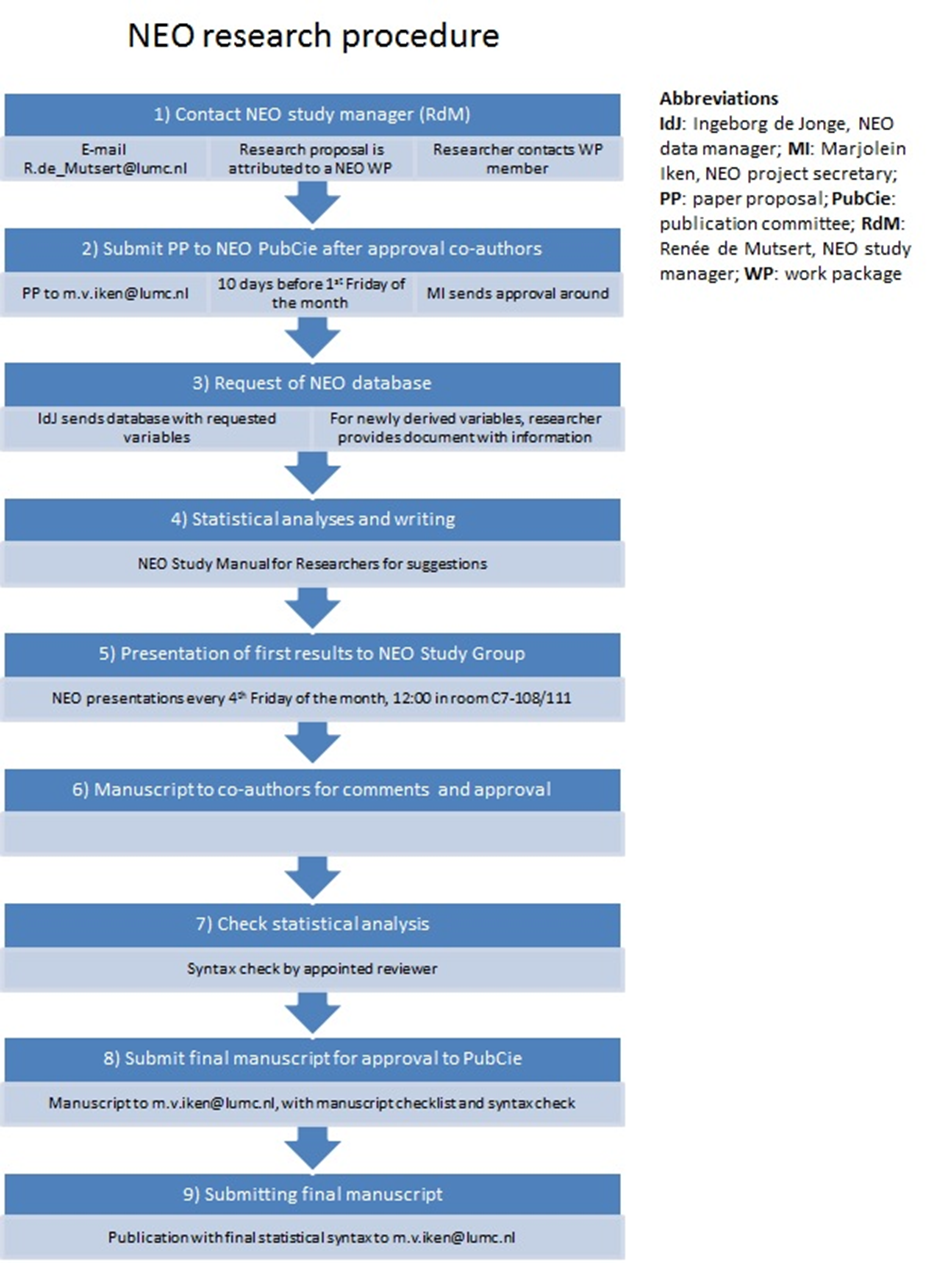Obesity -related diseases
The NEO study: aim and focus
Insights into how obesity leads to chronic diseases are just emerging. It has become clear that the fat cell is a potent regulator of signaling networks that affect whole body metabolism. These systemic effects include inflammation, hypercoagulability and autonomic nervous system dysfunction. The central theme of this study therefore is the toxic effect of adipose tissue. We investigate on a population level how obesity and body fat distribution affect major systemic responses leading to disease, and how these relations are influenced by individual and environmental factors. This will further our understanding of disease aetiology in individuals with and without obesity alike. A better understanding of the mechanisms underlying the development of disease in obesity will help to identify individuals who are susceptible to the detrimental metabolic, cardiovascular and other consequences of obesity and has implications for the development of prevention and treatment strategies.
…The NEO study: aim and focus
Insights into how obesity leads to chronic diseases are just emerging. It has become clear that the fat cell is a potent regulator of signaling networks that affect whole body metabolism. These systemic effects include inflammation, hypercoagulability and autonomic nervous system dysfunction. The central theme of this study therefore is the toxic effect of adipose tissue. We investigate on a population level how obesity and body fat distribution affect major systemic responses leading to disease, and how these relations are influenced by individual and environmental factors. This will further our understanding of disease aetiology in individuals with and without obesity alike. A better understanding of the mechanisms underlying the development of disease in obesity will help to identify individuals who are susceptible to the detrimental metabolic, cardiovascular and other consequences of obesity and has implications for the development of prevention and treatment strategies.
Research with NEO study data is organized along the following Work Packages: Atherosclerosis, Bone Disease, Brain Pathology, Diabetes, Gastric Reflux Disease, Liver disease, Neuroendocrine Disease, Oncology, Osteoarthritis, Pulmonary Disease, Renal disease, Venous thrombosis, and General Epidemiology.
The NEO study design and population
The Netherlands Epidemiology of Obesity (NEO) study is a population-based prospective cohort study that includes 6671 men and women aged 45–65 years, with an oversampling of individuals with overweight. At baseline, participants completed questionnaires with demographic, lifestyle, and clinical information. Participants visited the NEO study center of the LUMC after an overnight fast for an extensive physical examination, including blood and urine sampling, anthropometry, electrocardiography, spirometry, and measurement of the carotid artery intima-media thickness by ultrasonography. In random subsamples of participants magnetic resonance imaging of abdominal fat, pulse wave velocity of the aorta, heart, and brain, magnetic resonance spectroscopy of liver fat, indirect calorimetry, dual-energy X-ray absorptiometry, or accelerometry was performed. The collection of baseline data started in September 2008 and completed at the end of September 2012. From 2019 onwards, all participants are invited for a second round of measurements for the NEO study. Participants are followed for the incidence of obesity-related diseases and mortality.
Study design NEO study
For more detailed information about the NEO study design and methods: de Mutsert R, den Heijer M, Rabelink TJ, Smit JW, Romijn JA, Jukema JW, de Roos A, Cobbaert CM, Kloppenburg M, le Cessie S, Middeldorp S, Rosendaal FR. The Netherlands Epidemiology of Obesity (NEO) study: study design and data collection. Eur J Epidemiol 2013;28:513-523.
Perform research with the NEO study
Researchers who wish to perform research with the NEO database can contact the scientific director of the NEO study, Renée de Mutsert.



